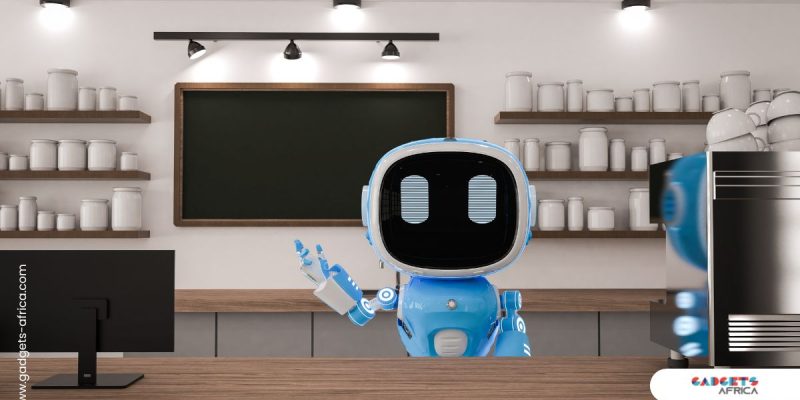Robot servers have debuted in Nairobi, creating a buzz in the capital’s hospitality industry. These futuristic waitstaff are not just a novelty; they signify a shift towards automation in the service sector, offering a glimpse into the potential future of dining.
The Arrival of Automation
Mohammed Abbas, the owner of the Robot Cafe, recognizes the immense value of his robotic workforce as a long-term investment, rather than a mere cost-cutting solution. They assist human staff by taking orders, serving food, and interacting with customers.
The Robot Cafe has named its robots as Claire, R24, and Nadia. These robots are equipped with AI technology, allowing them to navigate the restaurant environment, communicate with customers, and provide a unique dining experience.
Customer Reactions
The introduction of robot waiters has been met with curiosity and excitement from customers. Many diners find the experience novel and engaging, as the robots add a futuristic element to their dining experience. However, there are also discussions about how this shift might affect employment in the hospitality industry.
Impact on the Hospitality Industry
The deployment of robot servers is part of a broader trend towards automation in various sectors. In the hospitality industry, robots can help streamline operations, reduce costs, and enhance efficiency. However, this technological advancement also raises questions about the potential displacement of human workers and the future of employment in the industry.
Technological Challenges
While the introduction of robot servers is innovative, it comes with its own set of challenges. These include the need for regular maintenance, software updates, and ensuring that the robots can effectively interact with customers in different languages and cultural contexts.
Future Prospects
As technology evolves, more restaurants in Nairobi and other parts of Kenya will likely adopt robot servers. This trend could lead to further innovations in the dining experience, with robots potentially taking on more complex roles.






Mən mərclərimi daha dəqiq etmək istəyirəm, Mostbet mənə oyunları sayt daxilində izləməyə imkan verir?
Bəli, platformanın ən böyük üstünlüklərindən biri minlərlə oyunu pulsuz canlı yayımlamasıdır. Canlı yayım sayəsində siz komandanın motivasiyasını, oyunun tempini və zədə alan oyunçuları anında görürsünüz. Hesabınıza Mostbet Azerbaycan casino vasitəsilə daxil olduqda, yan tərəfində video nişanı olan bütün oyunları canlı izləyə bilərsiniz. Bu, kor-koranə mərc etmək əvəzinə, gördüyünüz mənzərəyə əsaslanaraq ən doğru proqnozu verməyə və uduş şansınızı saniyələr içində reallaşdırmağa imkan verir.